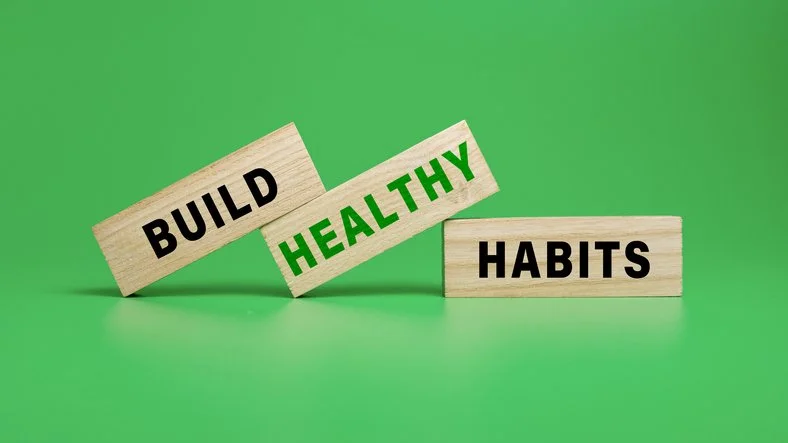Recent Revelations: How Beta Blockers Fail Hearts and What to Do Instead
The Shocking Findings on Beta Blockers: Harm Over Help
For over four decades, beta blockers have been a cornerstone of post-heart attack treatment. These medications work by blocking the effects of adrenaline, slowing the heart rate, and reducing blood pressure to protect against future cardiac issues, supposedly. Guidelines from major bodies like the European Society of Cardiology (ESC) and the American College of Cardiology have recommended them routinely, regardless of a patient's left ventricular ejection fraction (LVEF) – a key measure of heart function. But recent evidence paints a far less rosy picture. The pivotal study in question is the REBOOT trial (Treatment with Beta-Blockers after Myocardial Infarction without Reduced Ejection Fraction), a large-scale, international randomized controlled trial involving over 8,400 patients across 109 hospitals in Spain and Italy. Presented at the ESC Congress 2025 in Madrid and published simultaneously in the New England Journal of Medicine on August 30, 2025, the trial examined beta blocker therapy in patients who had suffered a myocardial infarction (heart attack) but had preserved or mildly reduced heart function (LVEF ≥40%). These patients represent a significant portion of heart attack survivors, as modern interventions like stents and timely reperfusion have improved outcomes, leaving many with relatively healthy hearts post-event. The results were unequivocal: beta blockers showed no evidence of reducing all-cause death, reinfarction (another heart attack), or hospitalization for heart failure compared to standard care without the drug. In the primary composite endpoint analysis, the hazard ratio was 1.02 (95% CI, 0.89-1.17), indicating no meaningful benefit, which challenges the foundational evidence for beta blockers, much of which stems from trials conducted before the era of routine invasive treatments like angioplasty, where hearts were often more damaged.
Even more concerning is the sex-specific analysis, published in the European Heart Journal on the same date. Among women with preserved LVEF, beta blockers were associated with significant harm. Women on the drug faced a nearly threefold increased risk of death (hazard ratio 2.8; 95% CI, 1.4-5.6) and higher rates of subsequent heart attacks or heart failure admissions. High doses amplified this risk, with cardiovascular death rates rising by up to 4.5 times. Men, however, showed no such adverse effects, highlighting a potential sex-based vulnerability – possibly due to differences in metabolism, hormone interactions, or baseline physiology that older studies overlooked. Lead investigator Dr. Borja Ibáñez, from Spain's National Center for Cardiovascular Research, emphasized the implications: "In many cases, prescribing beta-blockers to women after an uncomplicated heart attack may do more harm than good." This finding aligns with prior hints from observational data and the 2024 REDUCE-AMI trial, which also found no benefit in patients with LVEF >50%. Yet, the REBOOT trial's scale and rigor – with nearly four years of follow-up – make it a game-changer, prompting calls to revise global guidelines. For patients, this means questioning routine prescriptions: if your heart function is good post-heart attack, beta blockers might not protect you, and could endanger you. These revelations underscore a broader crisis in cardiology. Beta blockers, once a "gold standard," were based on outdated evidence from the 1970s and 1980s, when reperfusion therapies were scarce. Today's patients benefit from stents and statins, rendering beta blockers redundant for many. The trial's authors note that while low-LVEF patients (<40%) still need them for arrhythmia control, routine use in healthier hearts exposes millions to side effects like fatigue, depression, erectile dysfunction, and now, potentially fatal risks – all without proven upside.
How Pharmaceutical Companies Inflate Effectiveness: Weak Data and Deceptive Tactics
The REBOOT trial's findings didn't emerge in a vacuum; they expose systemic flaws in how pharmaceutical companies generate and present drug data. For decades, Big Pharma has prioritized profits over transparency, publishing weak or selectively curated studies that make mediocre drugs seem miraculous, which isn't accidental – it's a calculated strategy to secure approvals, drive prescriptions, and maximize revenue.
One hallmark tactic is the use of relative risk reduction (RRR) over absolute risk reduction (ARR), which dramatically exaggerates benefits. RRR measures the proportional drop in risk between treated and untreated groups, ignoring the baseline risk. For instance, if a drug reduces heart attack risk from 2% to 1% in a low-risk population, the ARR is a modest 1%, but the RRR is 50% – a figure pharma loves to tout in ads and press releases. As Ben Goldacre details in "Bad Pharma," this sleight-of-hand misleads doctors and patients, making drugs appear far more effective than they are. The FDA's own guidelines urge reporting both metrics, but companies often omit ARR, fostering cognitive bias where relative numbers dazzle without context. Publication bias compounds this deception. Industry-funded trials are four times more likely to report positive results than independent ones, per meta-analyses. Why? Negative trials vanish into the "file drawer." A PLOS Medicine study found that only 56% of trials register results publicly, and up to 50% of licensing studies remain unpublished if unfavorable. In the REBOOT era, beta blocker trials from the 1980s – small, non-randomized, and pre-reperfusion – were selectively highlighted for their positive outcomes, while the potential harms were downplayed. Modern pharma designs studies to favor their products: choosing weak comparators (e.g., placebo over better alternatives), short durations that miss long-term risks, surrogate endpoints (like blood pressure drops) instead of hard outcomes (like death), and unrepresentative populations (often excluding women or the elderly).
Ghostwriting and data manipulation seal the deal. Companies like Pfizer and Merck have been caught drafting "independent" papers via subcontractors, then recruiting academics as authors for credibility. Internal documents from lawsuits reveal how Merck's Vioxx trials excluded high-risk patients to hide cardiovascular dangers, leading to 60,000 deaths before withdrawal. For beta blockers, early trials were similarly flawed: underpowered, with flexible endpoints shifted post-hoc to achieve significance. A BMJ audit of 42 major pharma firms showed inconsistent policies on data sharing, with many burying adverse results to protect patents and sales, while the ecosystem thrives on financial incentives. Pharma funds 75% of trials and influences continuing medical education, ensuring doctors hear only the upside. Conflicts abound: authors of pro-beta-blocker guidelines often receive industry payments. The result? Overprescription of drugs like beta blockers generates billions annually despite marginal benefits. As the REBOOT trial illustrates, when independent, rigorous research pierces the veil, the emperor has no clothes. Patients pay the price – literally and literally – for this epistemic corruption, where science serves shareholders over health.
Conclusion: Embrace Prehab for True Heart Protection
The REBOOT trial's damning verdict on beta blockers is a wake-up call: relying on pharmaceuticals for heart health is risky business, especially when companies obscure the truth. Instead of popping pills with questionable benefits and hidden harms, prioritize "Prehab" – proactive habits that build resilience from the ground up. Start with regular exercise: aim for 150 minutes weekly of moderate activity like walking or strength training, which strengthens the heart, improves ejection fraction, and slashes cardiac risk by up to 30% without side effects. Pair it with quality sleep – 7-9 hours nightly – to regulate stress hormones and reduce inflammation, mimicking beta blockers' intended effects naturally.
Seek non-burning sun exposure for 10-20 minutes daily; it boosts vitamin D levels, which correlate with lower heart disease rates, while avoiding the burns that spike cancer risk. Above all, fuel your body with unprocessed, whole foods: think grass-fed meats, wild fish, eggs, and full-fat dairy for their inherent nutrient-dense fats like omega-3s and saturated fats that support cell membranes and hormone balance. Avoid processed chemicals, high fructose corn syrup (which drives insulin resistance and obesity), and seed oils (like canola or soy, loaded with inflammatory omega-6s that exacerbate heart issues). This ancestral eating pattern – echoed in studies like those on Mediterranean and carnivore diets – outperforms drugs in preventing and reversing cardiovascular disease.
Prehab isn't just safer; it's empowering. By ditching weak pharma data and embracing these fundamentals, you fortify your heart against real threats, sidestepping the pitfalls of overmedicalization. Consult your doctor to taper beta blockers if appropriate, but remember: true healing starts with lifestyle, not a lifetime prescription.



